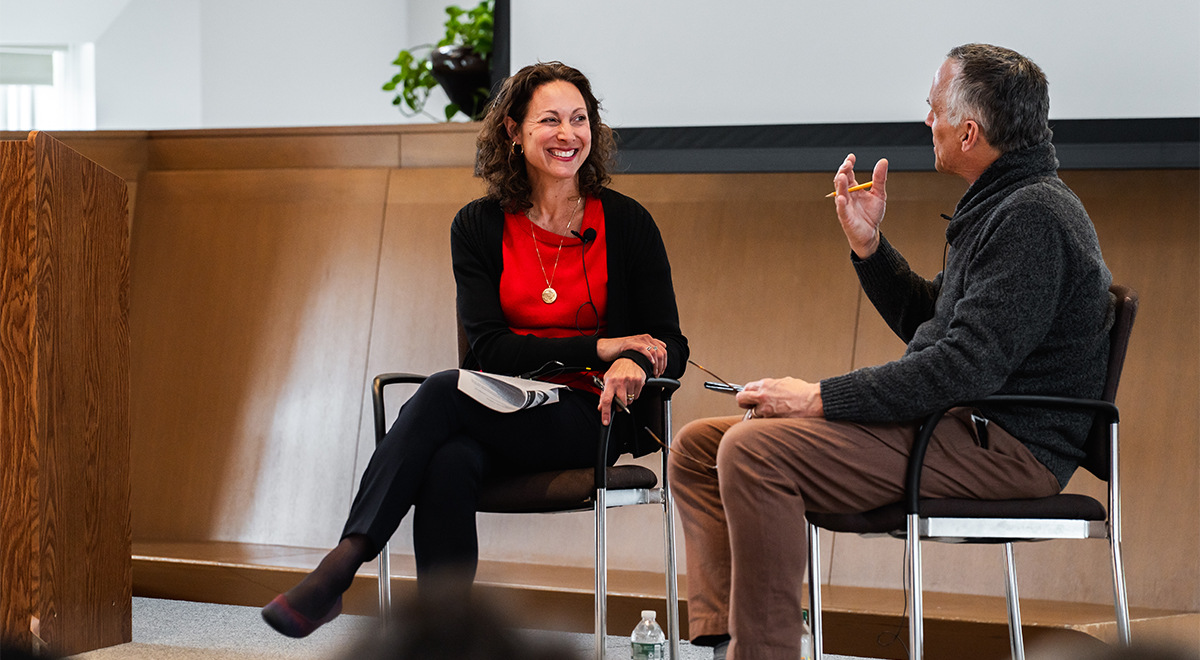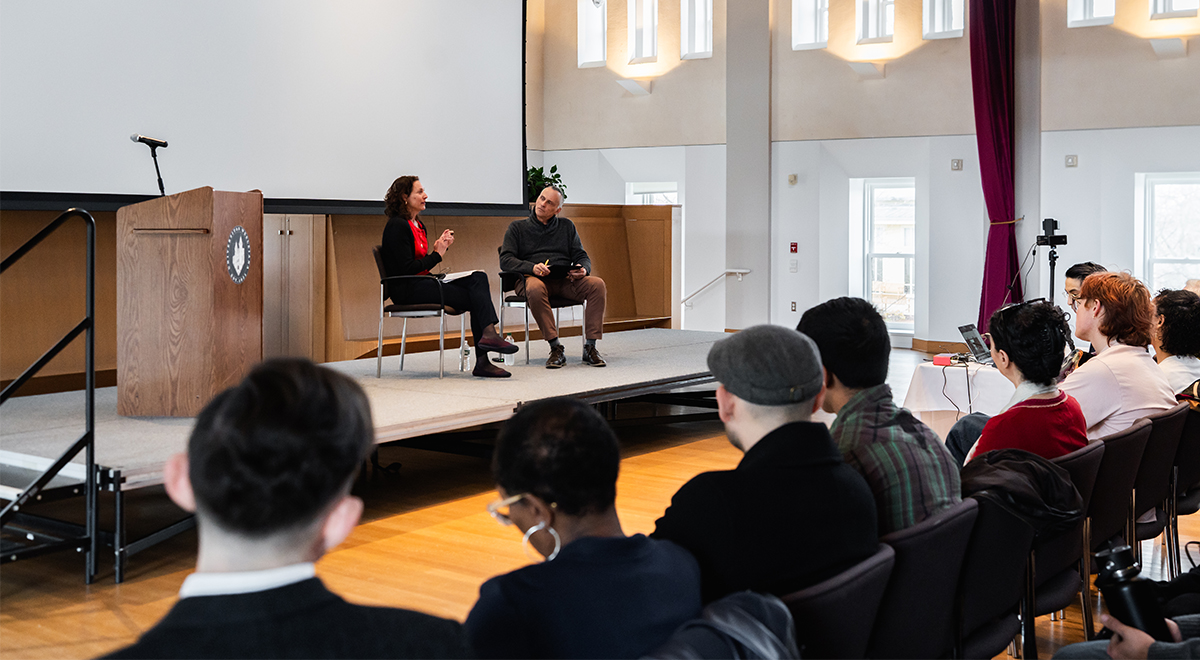Emily Bazelon on Fate of Free Speech During Hugo Black Lecture

Immigration officials have detained students and others for protesting and for their speech. Our social media algorithms are flooded with disinformation and imagery created by artificial intelligence. The principles of the First Amendment are at risk. Is the answer more speech in opposition to threats to democracy? Or is it carefully crafted regulation like some European countries have created?
These and other thorny topics were the subject of the 32nd annual Hugo L. Black Lecture, “The Fate of Free Speech in the Trump Era,” featuring Emily Bazelon, staff writer at New York Times Magazine, and President Michael S. Roth ’78 on March 31.
The lecture—endowed by Leonard S. Halpert ’44 and named for the late U.S. Supreme Court Justice Hugo L. Black—brings discussions about crucial First Amendment issues to campus each year. Roger Grant, interim associate provost, introduced this year’s lecture, which was hosted by the Allbritton Center for the Study of Public Life.
Bazelon said the First Amendment, largely through Supreme Court action, has expanded to protect actions that are not purely spoken or written speech as speech. In 2010, for example, the Supreme Court’s decision on Citizens United vs. FEC permitted dark money spending on electoral campaigns by categorizing it as speech. She also cited studies that found Elon Musk’s takeover of Twitter has led to algorithmic changes that boost pro-Trump and right-wing content on the social media platform, now known as X.
“I think what gets lost sometimes is this recognition that money, like an algorithm, can amplify speech in this way that the question is no longer ‘Does everybody get to talk?’ It’s ‘Whose voices do we hear?’” Bazelon said. “If those voices are only people with lots of money, or who have lots of power already, that has a distorting effect on democracy.”
She also raised concern with government influence over broadcasting licenses and how it may impact cable news networks. CBS, she said, is amid merger talks that need FCC approval, so it may be more susceptible to the pressure the Trump administration is putting on some institutions. “We are seeing the way the government’s authority over broadcast licenses is an Achilles heel, to some degree,” Bazelon said. “But that doesn’t mean that newspapers are not also going to see the same kinds of efforts to chill speech and control speech that universities are seeing right now, or that the law firms are experiencing.”
Attacks on the media are not surprising, she said. “Once you’re willing to tear at the fabric of American civil society, of course you’re also going to come after the media,” Bazelon said. “Because we also are playing a role, not the same role as universities or law firms, but we’re also being independent and trying to hold the government accountable in some way.”

Bazelon covers the intersection of law and pressing social issues, like free speech, state and federal government, and reproductive rights. Roth has been one of the few college presidents willing to speak out against the creep of authoritarianism in this country, penning several op-eds and speaking with media outlets across the country in recent weeks in support of democracy.
“I think it’s so important that we have a journalist like yourself, who is sounding the alarm and pointing out these issues, and students and professors around the country who are also pointing out these abuses of power and calling for reform, so that this just doesn’t go unchecked,” Roth said.
Following the talk, the near-capacity crowd of students, faculty, staff, and community members, and interested parties listening online, asked thought-provoking questions of Bazelon and Roth during a question-and-answer session. Roth and Bazelon both pointed to a potential need for collective action from citizens, saying it may be a way to force the government’s hand to protect free speech.

